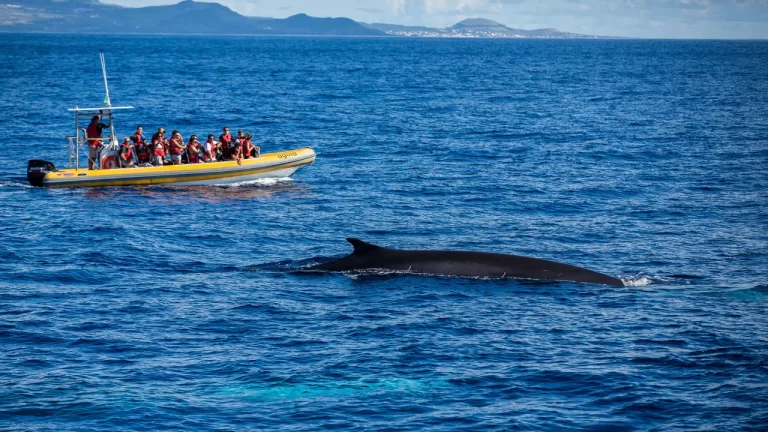From dramatic humpback breaches to enthralling dolphin acrobatics, a springtime visit to the Azores is synonymous with incredible sightings of whales and dolphins.
The remote Portuguese archipelago, consisting of nine volcanic islands about 900 miles west of Lisbon, lies in the North Atlantic Ocean, putting it on the migration route of several whale species. And from March to June – whale migration season – lucky tourists may even catch a glimpse of behemoths like the blue whale and the fin whale, the two largest animals on the planet.
As well as migrating whales, the Azores also have resident cetaceans, including sperm whales and some dolphin species, which can be seen year-round. With nearly a third of the 94 known cetacean species in the world observed here, the archipelago consistently ranks as one of the best places on the planet to go whale watching.
But the centuries-old relationship between Azoreans and whales has not always been so harmonious. For many years the islands were a charnel house where these leviathans were grimly exploited for every drop of value
“The archipelago was populated by settlers from mainland Portugal from the 15th century onwards,” says Rui de Souza Martins, emeritus professor of Anthropology at the University of the Azores. “These early inhabitants, mostly farmers, limited themselves to harvesting the dead whales they found at sea or on the coast. The whale blubber was boiled down to make oil for lamps.”
By the 18th century, the Azores’ resident population of sperm whales was drawing attention from the United States. Whaling ships from Nantucket and New Bedford, Massachusetts, would make the roughly 2,300-mile voyage east to go hunting. In the age before the discovery of crude oil, the use of spermaceti (the waxy substance obtained from the head of a sperm whale) and whale oil (from blubber) for lighting and other purposes, made whaling a lucrative industry.
These factory-style ships would lower small wooden boats into the ocean for the hunt, then haul the dead animal onboard the larger ship for processing.
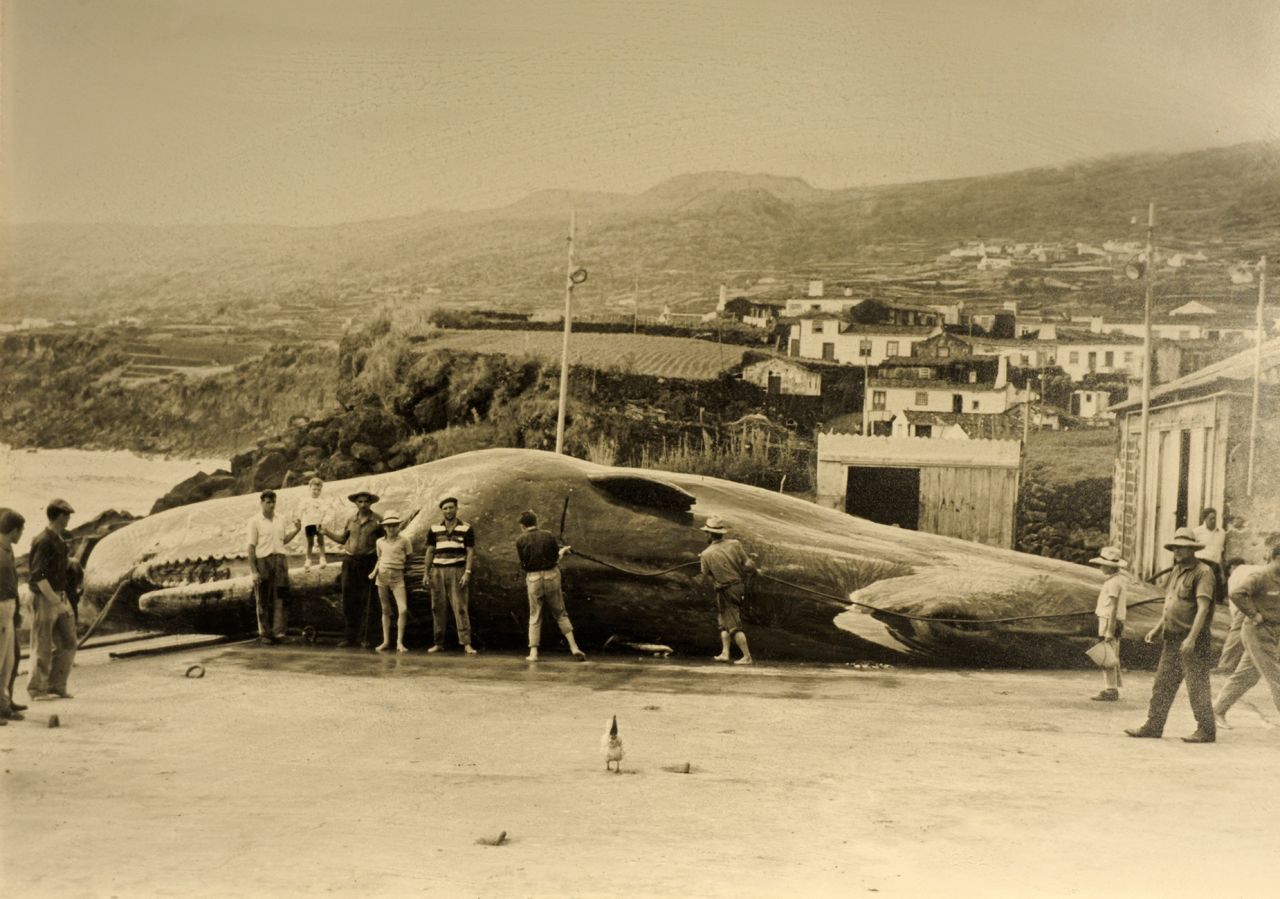
It wasn’t only the whale carcasses that came onboard. The Americans recruited Azorean men at low pay, enticing them with the offer of residence in the US once they’d worked a certain number of years on the ships. Many emigrated to Massachusetts with the whalers.
By the middle of the 19th century, some of those emigrants returned to the archipelago, bringing with them the knowledge of whale hunting and dedicated boat construction. They kicked off the local whaling industry, building seven-man hunting canoes and equipment. Soon, factories processing whale oil, meat and bones sprung up on the islands.
Whaling seems unspeakably cruel from a modern perspective, but back then it was a matter of survival. There were no other paying jobs in the islands. Many whalers – who were primarily farmhands working for rich landowners – didn’t even know how to swim, but risked life and limb to provide for their families.
“Whale hunting and the commercial processing of its derivatives was a much needed source of income for the locals,” says José Carlos Garcia, sociologist and anthropology researcher. The money earned from whaling was used to pay for groceries, children’s education, and other necessities. Films like 1969’s “The Last Whalers” and the 2019 Netflix production “The Last Whalers of São Miguel,” provide a glimpse into the difficult lives of the Azorean whalers.
The slow decline
However, it wasn’t to last forever. After crude oil was discovered in 1859, the demand for whale oil decreased dramatically in the following decades.
Right until the industry’s end, in 1987, the practices of Azorean whalers were different from the factory ships of the Americans. They continued to hunt in their small wooden boats with handmade weapons, killing only a small number of sperm whales. Counterparts in other countries used modern vessels and sophisticated harpoons, leading to the decimation of many whale species.
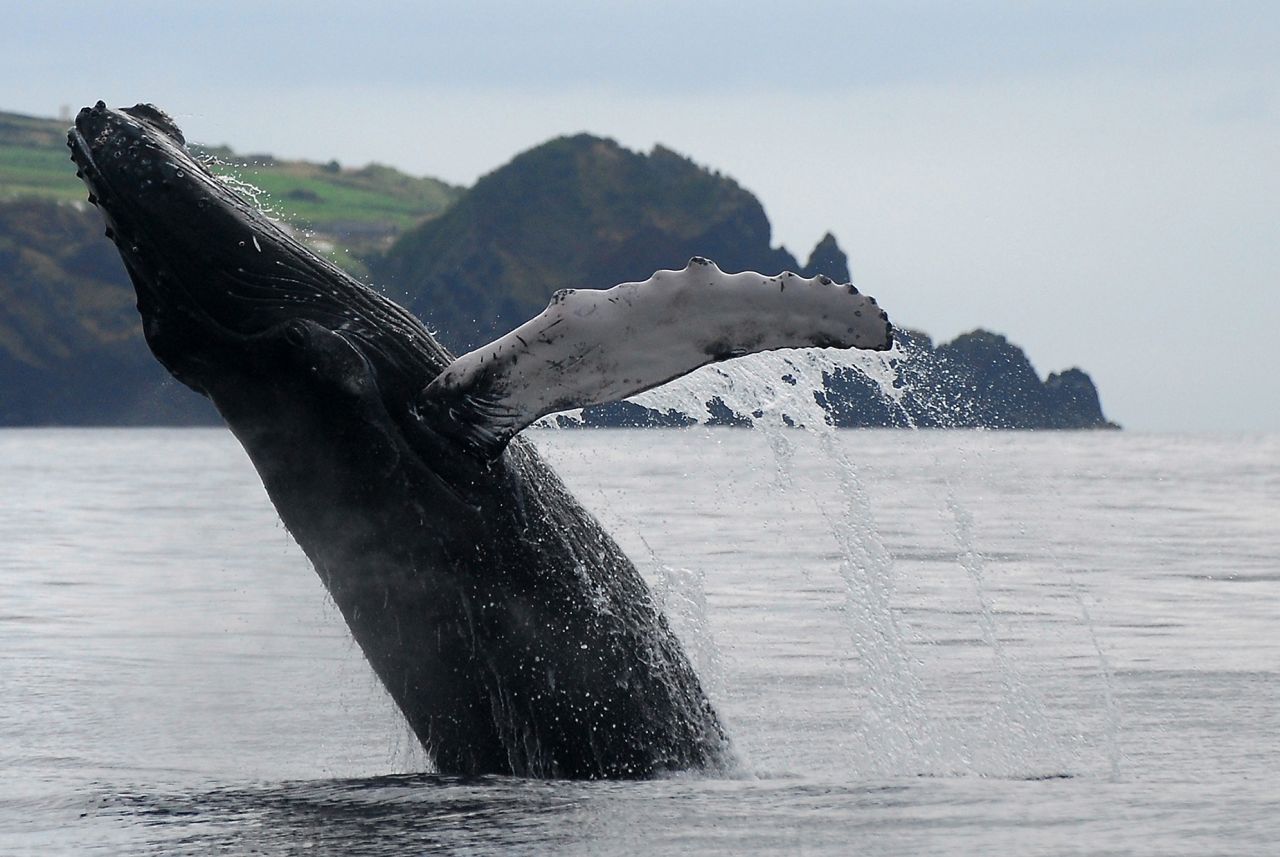
To address this drastic decline in populations, the International Whaling Commission issued a moratorium on commercial whaling in 1982. Portugal supported the ban, which meant the Azores – an autonomous region of the country – also had to comply. Pressure from local and global conservation organizations led to the eventual end of whaling in the Azores. The last whale was said to have been killed in 1987 by some disgruntled whalers from Pico island.
New beginnings
The transition away from whaling gave birth to new industries and practices – with the impetus coming from outside. In 1990, French national Serge Viallele set up the first whale watching company in the archipelago, on Pico island.
“Viallele showed that it was possible to live off the whales without killing them,” says Miguel Cravinho, co-owner of Terra Azul, a whale watching company based on São Miguel island. “The focus quickly shifted from whaling to eco-tourism, conservation and education.”
Today’s whale watching trips aren’t just fun days out for tourists; they support research, with the data collected from each of the trips used by local scientists to study behaviors and migration patterns. It is, says Cravinho, an “educational approach to whale watching.”
Nearly 20 whale watching companies currently operate across the Azores, following global best practices and guidelines issued by the International Whaling Commission (IWC), as well as local regulations.
Boats must follow whales at a maximum speed of 10 knots, can only approach from 90 degrees behind, and must stay 50 meters (164 feet) away from them – or three times that distance if there’s a mother and calf. Only three boats may hover near the whales at any time, for a maximum 15 minutes – and sailing through a pod is not allowed.
To keep disturbance to a minimum, most whale watching companies in the Azores use RIBs (rigid inflatable boats) to minimize noise and emissions. The number of whale watching boats is strictly limited by a license system, which issues a maximum number per island – or per zone for the smaller islands. Hilltop lookout points known as “vigias,” once used by the whalers to spot prey, are now used by whale watchers to direct boats to different areas, so they don’t congregate near the same animals.
“We developed a new and dynamic culture in which the whale took center stage as a creature of ecological, scientific, heritage, and tourist value,” de Souza Martins explains. Meanwhile, museums across the islands discuss the Azores’ whaling history, and you’ll still see traditional 40-feet whaling canoes repurposed for sailing and rowing, used annually in summer regattas.
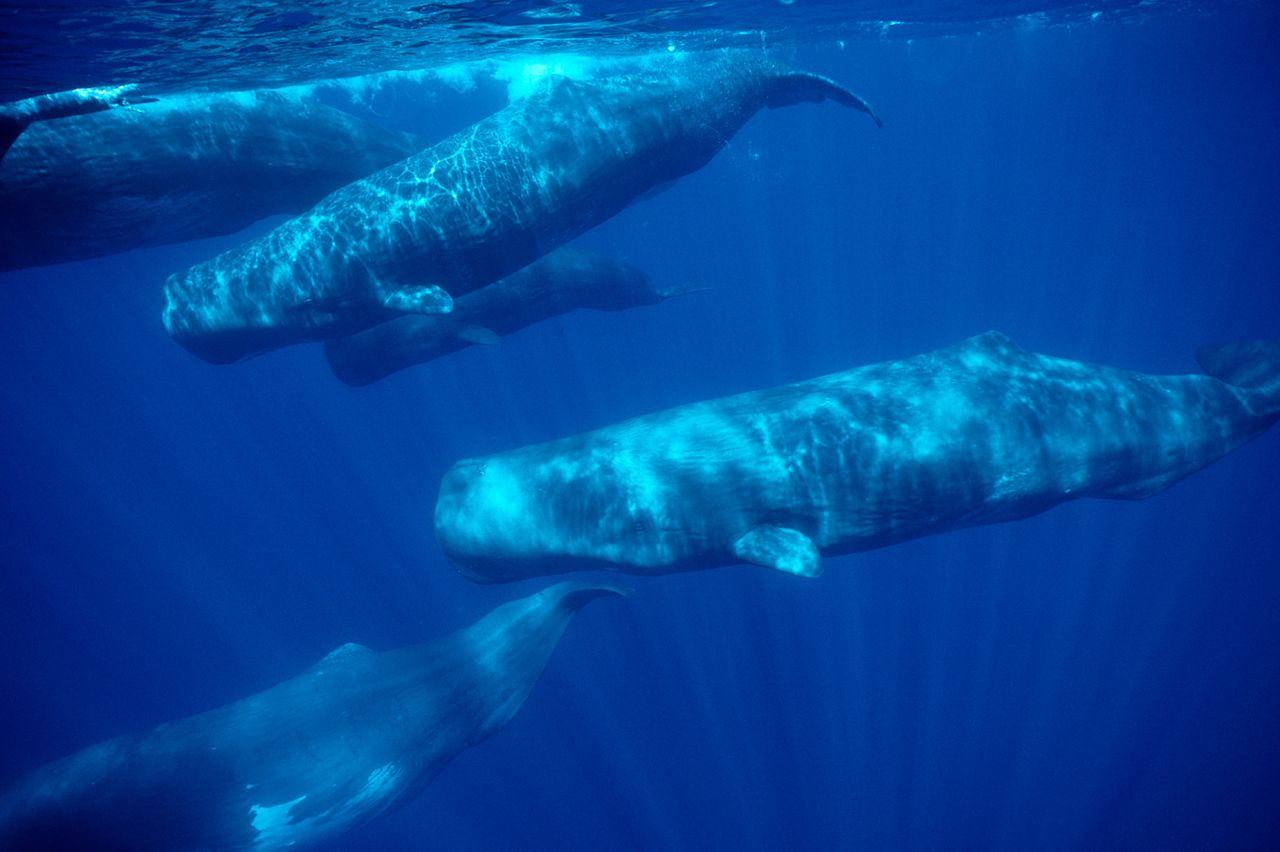
In February 2023, the archipelago was recognized as a Whale Heritage Site by the World Cetacean Alliance, an accolade described as the “gold standard for responsible whale watching” by its honorary president, Jean-Michel Cousteau. It is the second site in Europe and only the sixth in the world to achieve the rating.
Whale Heritage Sites are places that have been judged to have achieved an “environmentally, socially and economically sustainable balance” between nature, the local community and what visitors expect from the place.
Destinations must have already have conducted research on the whale watching in their area, and must commit to further research, education and awareness – as well as staging cultural events that celebrate cetaceans.
A new risk
With rising tourist numbers and the increasing popularity of whale watching tours, there are concerns about the pressures on whales and their behavior. In his paper on whale watching as eco-tourism, Luís Silva, senior research fellow at the Centre for Research in Anthropology in Lisbon analyzed potential challenges posed by the whale watching industry, both to the animal and the local community – from stress for the whales to profits going to tour company owners rather than the wider community.
For now, whale watching remains a major draw for visitors to the islands.
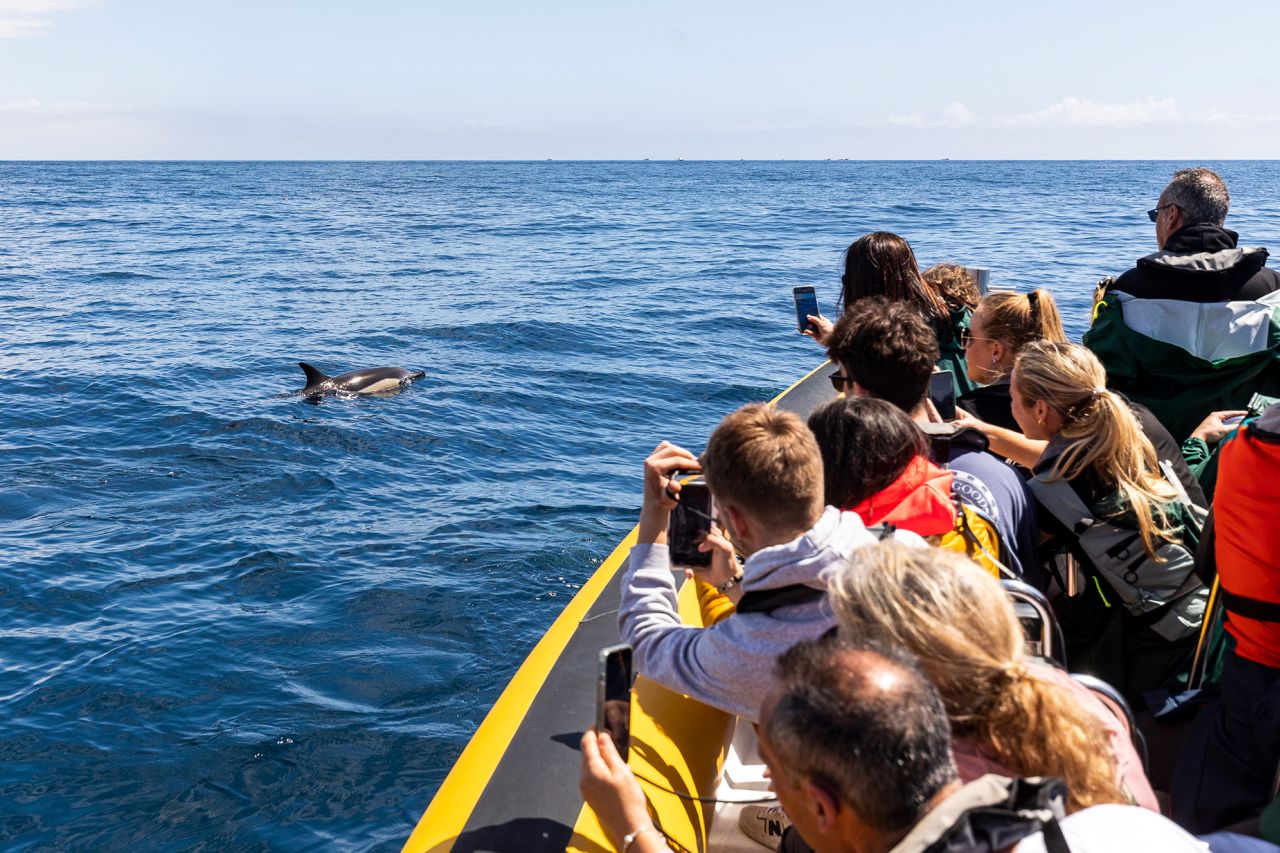
“The whale has had such a remarkable journey in the Azores,” says Garcia.
“Once considered a sea monster, it later became a useful resource. Now, it is a symbol of our collective identity and universal value.”
— CutC by cnn.com


